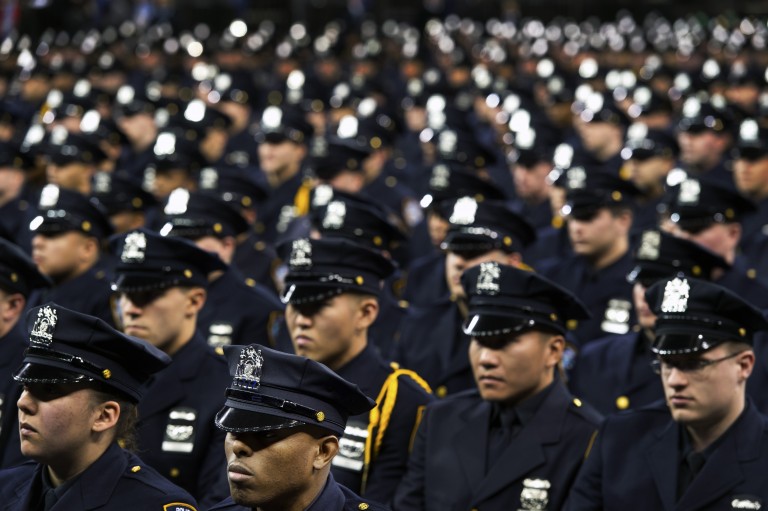
The President’s Task Force on 21st Century Policing issued its findings this month. Photo Courtesy of Demetrius Freeman/Mayoral Photography Office.
President Barack Obama’s newly-established President’s Task Force on 21st Century Policing released its initial report earlier this month, with findings gathered primarily from public “listening sessions” held in Washington, Cincinnati, and Phoenix. The task force was created by President Obama in December in response to recent events indicating a rift between police and the communities they serve. At the heart of the mission: rebuilding trust.
Made up of representatives from law enforcement and public safety agencies as well as academia, the task force was given an initial 90 days to identify best practices and offer recommendations on how policing practices can promote effective crime reduction while building public trust. Earlier this month, the task force issued its initial findings.
These findings, compiled into a 103-page “Interim Report,” were based upon a public engagement process aimed at gaining broad input and expertise from stakeholders to inform and advise them in developing recommendations. The public was invited to participate in one of two ways: listening sessions, which the task force convened to hear testimony and receive comments from the public; and written public comments, which were reviewed and considered by the task force. Quotes and suggestions from members of the general public are included throughout the report.
Each of the seven public listening sessions addressed a specific aspect of policing and police-community relations, although cross-cutting issues and concerns were voiced at every session. The seven sessions covered the following topics: Building Trust & Legitimacy; Policy & Oversight; Technology & Social Media; Community Policing & Crime Reduction; Training & Education; Officer Wellness & Safety; and the Future of Community Policing.
Building trust and nurturing legitimacy on both sides of the police/citizen divide was not only the subject of the first listening session but also the founding principle of the task force. As the report reads, “For the last two decades, policing has become more effective, better equipped, and better organized to tackle crime. Despite this, Gallup polls show the public’s confidence in police work has remained flat, and among some populations of color, confidence has declined.” Further, “decades of research and practice support the premise that people are more likely to obey the law when they believe that those who are enforcing it have the legitimate authority to tell them what to do. But the public confers legitimacy only on those whom they believe are acting in procedurally just way.”
“When any part of the American family does not feel like it is being treated fairly, that’s a problem for all of us,” said President Obama, underpinning the philosophical foundation for the Task Force on 21st Century Policing. “It’s not just a problem for some. It’s not just a problem for a particular community or a particular demographic. It means that we are not as strong as a country as we can be. And when applied to the criminal justice system, it means we’re not as effective in fighting crime as we could be.”
For further information about the Task Force on 21st Century Policing’s Interim Report, visit cops.usdoj.gov/policingtaskforce.
By Eugénie Bisulco

